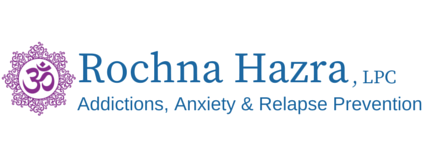On July 26, 2009, 36 year old Diane Schuler drove 2 miles the wrong way on the Taconic State Parkway before crashing into another SUV killing a total of 8 people. Toxicology reports revealed that at the time of the crash, Diane had an equivalent of 10 alcoholic beverages and high levels of the active ingredient in marijuana. Even family members were stunned… She was a “good mother” , they said and good mothers aren’t drinkers.
Most of us think of alcoholics as drunks rolling on a street corner. Here is what we don’t picture: the slim PTA Mom with impeccable hair and manicured nails; the friendly woman who sings in the choir, a thirty-something mother who cheers her kid on at the soccer field. The average alcoholic woman is of superior intelligence, has a better-than-average income, is usually between thirty-six and fifty years old and has two or three children.
It begins innocently enough: Women turn to alcohol to help them juggle work, family and financial demands. But alcoholism is a progressive disease and what begins as a drink to take the edge off a difficult day turns into several drinks just to get through the day.
There are several reasons why alcoholism is hard to detect in the suburban mom:
Drinking in solitude: many alcoholic women drink in solitude. Most are ‘kitchen drinkers’. She doesn’t get drunk at a party and slur her speech. What you don’t see is the amount she drinks after she returns from the party.
Well-Functioning: She gets through her day: When you call her, she sounds cheerful, may be even chirpy. She has her ‘act” together. She is organized, her home is clean and beautiful and she sounds excited about the next social event.
Our Expectations: However, the most important reason we don’t see it is that we don’t expect it and we don’t want to see it. We have bought into what a mom is supposed to look like, feel, be and act like and we don’t want that picture to have any cracks or chips.
We like that laminated glossy picture of the American family and we want to believe it. But very often, behind that shiny picture is pain, frustration, depression and feelings of never being enough. Its not just that this woman wants to hide the not-so-pretty side of her life, truth be told, we don’t want to see it either. We are confused and embarrassed by it. It is so much easier to gloss over things and chit-chat about nothing.
Stigma of Alcoholism: And so as the PTA mom, your neighbor or sister speeds past all warning signs, you remain completely clueless. When she becomes a full-blown alcoholic, you are shocked. You could have never guessed. And the truth is that her path to recovery is made harder by the special stigma that she faces in society.
Alcoholism Treatment: Women are 12 times more resistant to getting treatment than men. It is only by bringing this disease into the open, discussing the signs, expressing empathy and understanding, can we begin the healing.
Some Facts about Alcoholism in the Suburban Woman:
1. 17.6 million Americans are alcoholics. Of them, one third are women.
2. The average alcoholic woman is intelligent, has above average income, has two or three children and is between the ages of 36 and 50.
About Rochna: Rochna Hazra is trained in Marriage and Family Therapy at Virginia Tech. She includes the emotional, psychological, spiritual and family aspects of a person in her work. Originally from India, she combines the Eastern traditions of mindfulness, non-judgment and a holistic approach to healing with the Western approach of realism and solution-focused action.
Rochna has extensive knowledge, training and experience working with Addictions.
Rochna is also a Certified Advanced Relapse Prevention Specialist and trained in and Mindfulness-based Therapy and Relapse Prevention.
Click here to learn more about Alcoholism and my practice in Leesburg, Virginia


